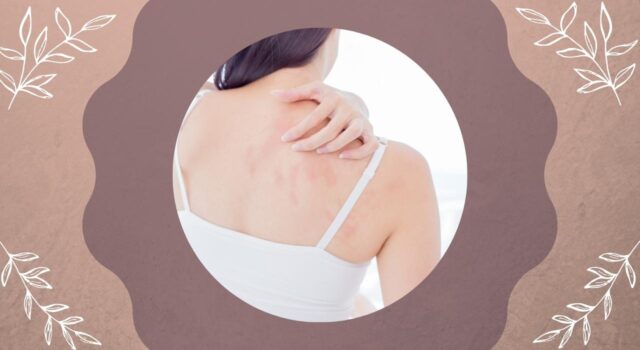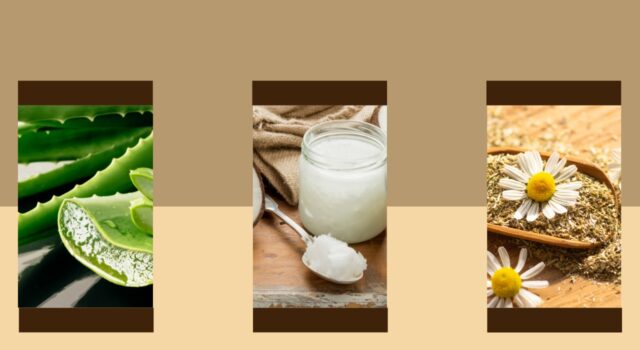Motherhood is one of the best things that can happen to a woman. Being able to take care of and enjoy your child from the moment they are born is beautiful, but it also comes with a lot of concerns. Millions of people all around the world suffer from skin conditions, and eczema is one of the most common ones.
We need to treat this condition if we don’t want it to worsen, but what happens when the new mom who’s still breastfeeding needs to take treatment for eczema?
Use this 2024 guide to find out everything you need to know about using these creams while you are nursing.
How to Make the Right Balance?

Motherhood is a journey filled with joy, challenges, and responsibilities. One of the concerns many mothers face is managing skin irritations while ensuring they don’t harm their nursing infants.
When you’re grappling with skin conditions like eczema (also referred to as dermatitis), the itchiness and discomfort can be unbearable. But the relief brought by certain creams or ointments raises questions: Is it safe for my child?
What if it transfers during nursing? The information here is going to help you eliminate these concerns, offering clarity to mothers who seek relief from skin ailments without compromising the well-being of their babies.
Make Sure You Understand Your Condition
Before delving into the specifics of creams and nursing, it’s crucial to understand the nature of dermatitis. It’s an inflammatory skin condition causing red, itchy patches.
While numerous treatments exist, topical applications remain one of the most common remedies.
However, with the vast array of ointments, lotions, and emollients available, how does one determine which is safe during the lactation phase? The solution lies in understanding the ingredients and their potential effects on the infant.
How to Choose the Right Product?

The process of selecting the right cream, especially for nursing mothers, can seem like navigating a labyrinth. First and foremost, it’s essential to understand the severity and type of eczema or skin irritation one is dealing with.
Is it a mild, occasional flare-up, or a chronic, debilitating condition? The answer can significantly influence the choice of cream.
For milder cases, lightweight lotions with minimal ingredients might suffice. In contrast, severe conditions might require more potent formulations, albeit with careful consideration for breastfeeding safety.
Another vital factor is understanding the skin’s specific needs. Some individuals might have drier skin, necessitating a cream rich in hydrating agents like hyaluronic acid. Others might have sensitive skin, making it crucial to opt for hypoallergenic formulations.
Test patches can be beneficial here, allowing individuals to gauge reactions before full-scale application. As you can see here, there are some great eczema cream options on the market for new moms who want to make sure their newborns are safe.
Furthermore, the advice of a dermatologist or healthcare professional cannot be overemphasized. Their expertise, combined with an understanding of an individual’s medical history and specific needs, can be instrumental in guiding one toward the most suitable cream.
Lastly, while considering all these factors, mothers should remain vigilant about ensuring the chosen product poses minimal risk during their breastfeeding journey, ensuring their peace of mind and the well-being of their infant.
How to Make Sure Your Newborn Is Safe?

The act of nursing (sometimes referred to as lactating or feeding) is a delicate period where anything the mother applies or consumes can affect the infant.
When considering a topical treatment for skin irritations, mothers should prioritize those with minimal or no harmful chemicals.
While it might be tempting to opt for potent solutions for quick relief, one must weigh the potential risks against the benefits. It’s advisable to consult healthcare professionals who can provide guidance tailored to individual needs and specific conditions.
Keep in Mind that There Are Always Risks
Even with the most careful selections, there’s no absolute guarantee of safety. Traces of creams or ointments can find their way to the infant during nursing sessions, leading to potential allergic reactions or other adverse effects.
Mothers can mitigate these risks by applying treatments well in advance of feeding sessions, allowing ample time for absorption.
Moreover, choosing creams with minimal fragrance and chemicals, and thoroughly cleaning the skin before nursing, can further reduce potential hazards.
What Can You Do to Minimize Any Risk?

In the quest to minimize potential risks to nursing infants, many mothers are turning to natural remedies to manage their dermatitis. Ingredients such as aloe vera, coconut oil, and chamomile have shown promise in offering relief without adverse effects.
Apart from topical treatments, holistic methods like dietary changes and stress management can also influence skin health.
By adopting a comprehensive approach, mothers can tackle the root causes of dermatitis while ensuring their remedies align with the demands of lactation.
Your Journey Is Different from Everyone Else’s
Every individual’s experience with dermatitis and its treatments will vary. It’s essential for mothers to listen to their bodies and observe their infants for any signs of discomfort or allergies.
Regular check-ups and open communication with pediatricians and dermatologists can help in adjusting treatments as needed, ensuring both mother and child remain in optimal health.
Listen to Your Body While Accepting Advice

While medical advice and online resources can offer valuable insights, it’s equally crucial for mothers to balance this information with their intuition and personal experience. After all, each individual’s skin is unique, with its own set of requirements and reactions.
What works wonders for one might be less effective or even counterproductive for another. This personal journey of discovery, of understanding one’s body and its responses, can be enlightening.
It’s about fostering a deeper connection with oneself, deciphering signals the skin sends, and adjusting treatments accordingly.
Mothers are encouraged to maintain a diary or journal, noting down their observations after each application. Over time, patterns emerge, guiding them toward what truly works for their specific condition and lifestyle.
This self-awareness, combined with external knowledge, creates a holistic approach to managing dermatitis during the delicate phase of breastfeeding.
Navigating the complexities of dermatitis treatment while breastfeeding is a journey that requires diligence, research, and often a touch of trial and error.
By prioritizing safety, seeking professional advice, and being attuned to the needs and reactions of both mother and infant, it’s entirely feasible to find a harmonious balance.
The health and well-being of both parties remain paramount, and with the right knowledge and resources, mothers can find effective relief from eczema while ensuring their breastfeeding journey remains uncompromised.









